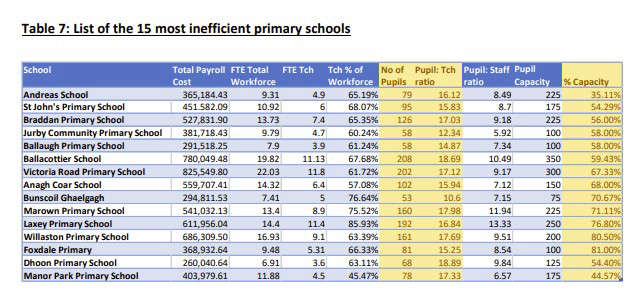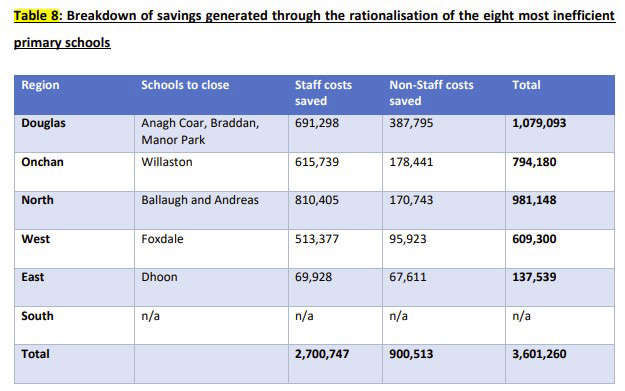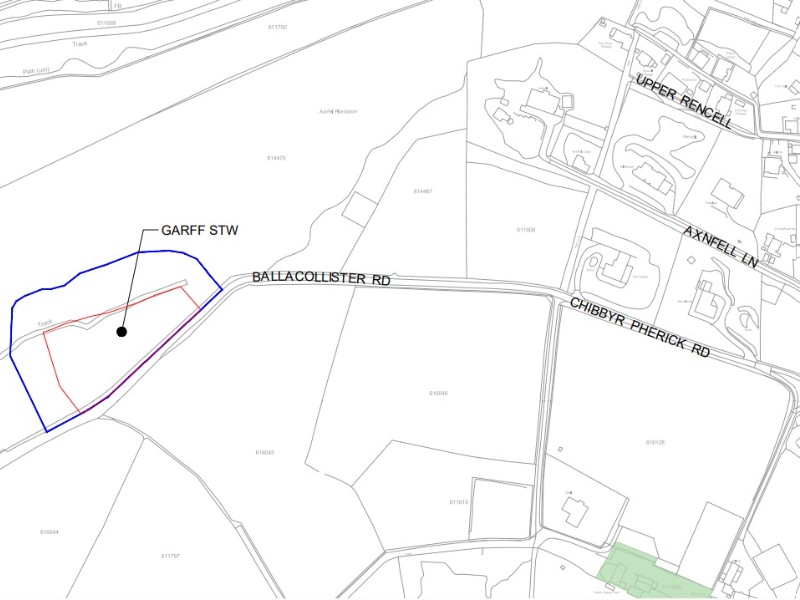
But DESC says it won't accept plan to 'rationalise' schools
Closing eight of the Isle of Man’s most ‘inefficient’ primary schools would save government £3.6 million each year.
That’s the finding of an independent review, commissioned by the Council of Ministers, which looks at the current funding system.
The report - compiled by Premier Advisory Group and MLG Education between October 2022 and June 2023 - has been published today (17 June).
It aimed to analyse the quality of service in schools and assess whether funding is being ‘focussed into the right areas with the most positive impact’.
‘Inefficient Spending’
The review found the greatest source of the Department of Education, Sport and Culture’s ‘inefficient spending’ is on maintaining small primary school settings.
The Island has 32 primary schools – some of which have pupil numbers below 100; the report highlights 15 as being the ‘least efficient’.
To resolve this it’s been recommended that the DESC explores the possibility of ‘rationalising’ the eight most inefficient schools.
This would then move the department towards a more efficient ‘one-form’ and ‘two-form’ entry model.
A one-form approach means each school would have one class for each year group.
Nineteen schools currently have too few pupils to meet the requirement of a one-form entry primary school.

‘Closure’
Under the proposals the following schools have been recommended for closure with the aim of merging pupils into existing primary schools nearby:
- Anagh Coar
- Braddan
- Manor Park
- Willaston
- Ballaugh
- Andreas and Bride
- Foxdale
- Dhoon
No schools in the south of the Island have been suggested for closure and Victoria Road, Ballacottier, Marown and Laxey were also excluded due to their higher total capacities.
Jurby and St Johns were also excluded due to their locations; St Thomas’ was ruled out due to its religious denomination and Bunscoill Ghaelgagh was not considered due to it being the only Manx speaking school.
The report says the Isle of Man’s commitment to full inclusion, as well as the importance of some of the smallest primary schools to the community, has been appreciated.
However it states that this would be the most efficient way to improve the quality of education that children receive under the current funding package due to demographics and demand.
This includes efforts to increase school and class sizes in some of the smallest primary settings, to achieve pupil to teacher rations of 20:1, and to remove mixed age group classes.
'Feedback'
All proposed mergers have been discussed with the department and the review team has provided a detailed plan mapping out which schools would be consolidated or closed.
Alternative settings these pupils could attend, and the savings this would create for reinvestment elsewhere, have also been provided.
The review team says in the focus groups most headteachers were opposed to any major changes to the ‘status quo’ in terms of school sizes, class sizes and mixed-age groups.
However it adds there were ‘consistent complaints’ raised around deficiencies in funding, support staff availability, ability to manage workloads and training for the role of headteacher.
The review found to address these issues either extra funding is required or efficiencies must be made by consolidating some primary settings to increase class sizes.
‘£3.6 million’
The report suggests £3.6 million would be saved each year if this model was adopted.
This, it says, would have ‘several benefits’ including the ability to put more money into improving additional education needs provision and increasing support and administrative staff.
There would also be the possibility of opening a special school or larger Specialist Provision Centre, or centres, at sites which had been closed.
The review recommends splitting pupils from closed schools across the numerous others and giving parents the choice of where their child attends.

‘Not accepted’
The Department of Education, Sport and Culture says it does not accept the recommendation to ‘rationalise primary settings’ as defined within the report.
It says it recognises the value of schools serving communities whilst the educational outcomes for students remain strong.
However it says it will continually review school capacities to ensure the most efficient use of the school estate is achieved.
It adds: “In this way all required services can be delivered in the most effective manner.
“Decisions will be guided by an ongoing review of building utilisation, population data, and planned development within a given area.
“This approach ensures that schools remain adequately equipped to deliver a modern curriculum to achieve positive outcomes.”
The DESC says it believes that working on the ‘key areas’ addressed in the report will increase the efficiency of ‘resource utilisation’ whilst maintaining or improving educational outcomes.
“By embracing the use of technology, exploring innovative teaching methods and curricula, and by continuing to foster an inclusive and equitable learning environment, the department will have the necessary expertise, resources and delivery structures to support education delivery which is responsive, effective and efficient for current learners as well as for that of future generations.” - Department of Education, Sport and Culture
It adds it is committed to taking action of the other identified priorities with a project delivery plan being developed.
However it warns additional resource will be required to deliver on these key actions.
As such the department will request access to a ‘transformation fund’ and resourcing to support the department in the future.
'Reports'
You can read the report in full by clicking HERE.
You can read the department’s response in full by clicking HERE.


 Manx Utilities says Garff sewage treatment works needed for local community
Manx Utilities says Garff sewage treatment works needed for local community
 Classic TT: Further one-hour delay to today's racing
Classic TT: Further one-hour delay to today's racing
 Police urge racing fans to take things easy as race schedule concludes
Police urge racing fans to take things easy as race schedule concludes
 MHK believes Tynwald's summer recess is too long
MHK believes Tynwald's summer recess is too long
